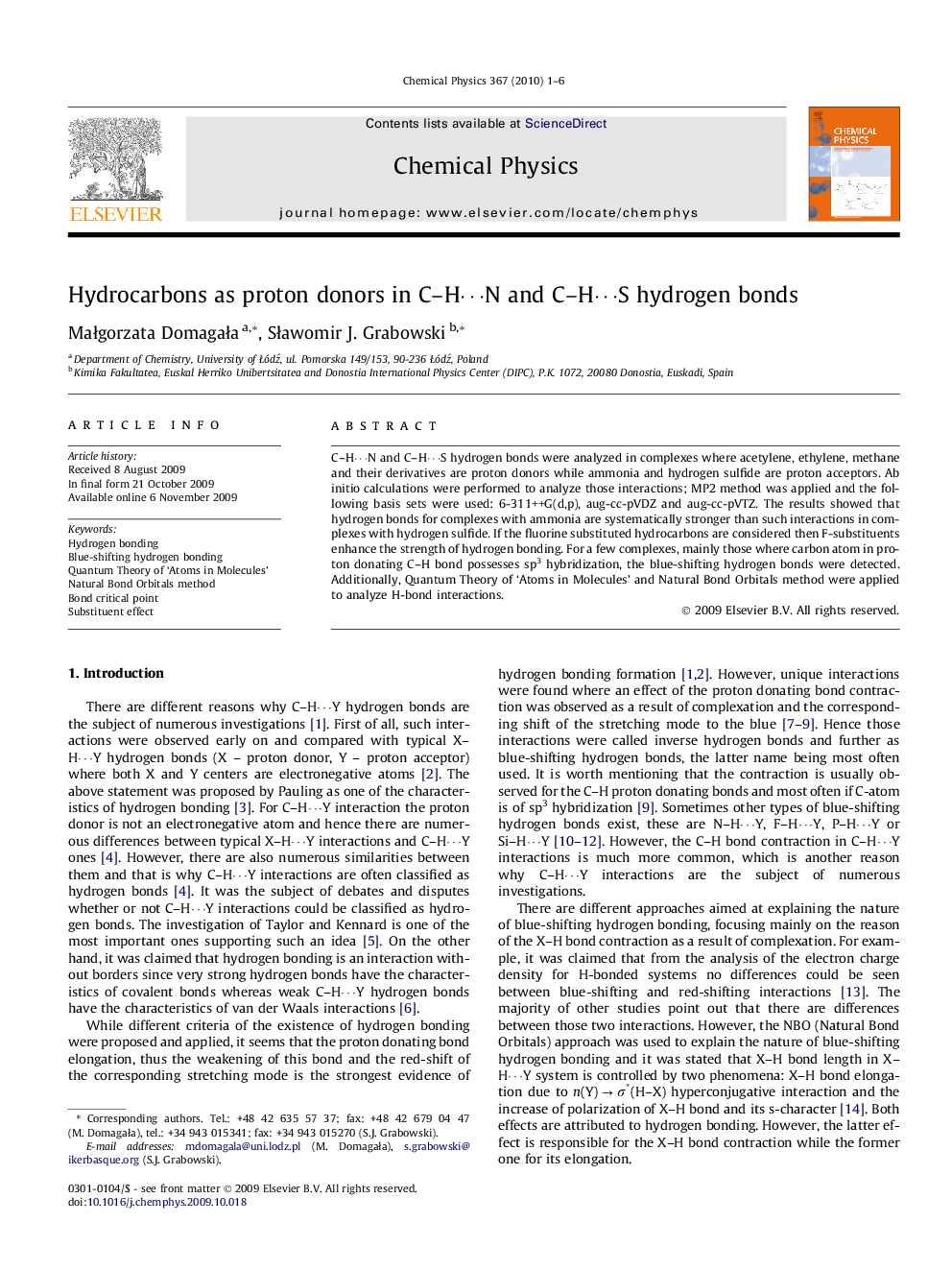| Article ID | Journal | Published Year | Pages | File Type |
|---|---|---|---|---|
| 5375395 | Chemical Physics | 2010 | 6 Pages |
Abstract
C-Hâ¯N and C-Hâ¯S hydrogen bonds were analyzed in complexes where acetylene, ethylene, methane and their derivatives are proton donors while ammonia and hydrogen sulfide are proton acceptors. Ab initio calculations were performed to analyze those interactions; MP2 method was applied and the following basis sets were used: 6-311++G(d,p), aug-cc-pVDZ and aug-cc-pVTZ. The results showed that hydrogen bonds for complexes with ammonia are systematically stronger than such interactions in complexes with hydrogen sulfide. If the fluorine substituted hydrocarbons are considered then F-substituents enhance the strength of hydrogen bonding. For a few complexes, mainly those where carbon atom in proton donating C-H bond possesses sp3 hybridization, the blue-shifting hydrogen bonds were detected. Additionally, Quantum Theory of 'Atoms in Molecules' and Natural Bond Orbitals method were applied to analyze H-bond interactions.
Related Topics
Physical Sciences and Engineering
Chemistry
Physical and Theoretical Chemistry
Authors
MaÅgorzata DomagaÅa, SÅawomir J. Grabowski,
